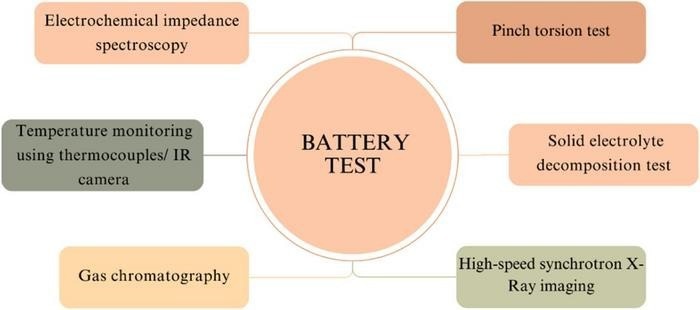Researchers at the Industrial Tribology Laboratory have published detailed research on battery health management in the prestigious Energy Storage and Saving journal. Their research thoroughly examines battery design, manufacturing methods, fault detection tactics, and cutting-edge recycling approaches.
 Various fault detection methods for batteries. Image Credit: Pavel M. Roy, et al.
Various fault detection methods for batteries. Image Credit: Pavel M. Roy, et al.
In an era where sustainable energy is crucial, a pioneering study sheds light on battery health monitoring. It methodically investigates the design, optimization, defect detection, and recycling of lithium-ion, lead-acid, and nickel metal hydride (NiMH) batteries, which are critical components for the future generation of portable electronics, electric vehicles, and renewable energy systems.
As the use of electric vehicles and renewable energy sources increases, so does the demand for efficient and sustainable battery solutions. The issues of performance deterioration, safety concerns, and environmental effects are significant.
To reduce environmental impact, it is critical to innovate in battery design, optimization, and fault detection and create effective recycling systems. This requirement necessitates extensive research to advance battery health management and promote sustainable energy storage options.
This ground-breaking study delves deeply into the intricacies of battery design and optimization, with a focus on improving electrode materials and topologies to improve energy density, performance, and safety. Machine learning (ML) approaches are recognized for their ability to improve electrolyte penetration and ion transport in lithium-ion batteries.
The study emphasizes the need for early fault detection using Artificial Intelligence (AI) and Machine Learning (ML), essential for preventing battery failures and increasing lifespan. Innovative technologies for real-time monitoring of thermal runaway include dual-wavelength photoelectric and electrochemical sensing.
The study assesses the environmental effect and efficiency of several recycling technologies, including pyrometallurgy, hydrometallurgy, mechanical separation, and electrodialysis, focusing on sustainable practices.
Our research underscores the critical role of integrating sophisticated technologies like AI and ML for early battery fault detection. These innovations are pivotal for bolstering battery reliability and safety. Moreover, embracing sustainable recycling practices is fundamental in mitigating the environmental repercussions of battery disposal. Our findings are poised to guide future innovations in battery technology, with an unwavering focus on both efficiency and environmental stewardship.
Dr S.H. Gawande, Study Lead Author and Professor, Department of Mechanical Engineering, M.E.S. College of Engineering, S.P. Pune University
The findings of this study apply to various sectors. Improving battery design and fault detection techniques will improve safety and dependability, especially in electric vehicles and renewable energy industries.
The focus is on sustainable recycling solutions to reduce the environmental effects of battery waste. Integrating AI and ML in battery health monitoring is expected to enhance technological standards, inspiring more innovation and research in the industry.
Journal Reference:
Roy, P. M., et. al. (2024) Battery Health Management- A Perspective of Design, Optimization, Manufacturing, Fault Detection, and Recycling. Energy Storage and Saving. doi:10.1016/j.enss.2024.04.001